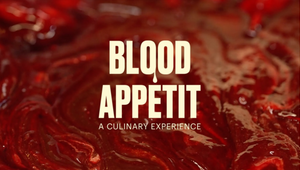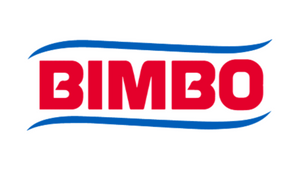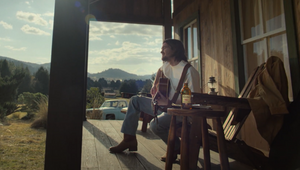
Producing Tomorrow’s Producers: Matt Blitz on Not Fearing Failure

Matt Blitz was recently promoted from SVP, executive producer to head of integrated production at DDB Chicago. An important part of the agency’s leadership team under CEO Andrea Diquez, Matt holds over 20 years of experience and has won over 300 awards and accolades over the course of his career from various International Awards shows for multiple clients including Cannes, Art Director’s Club, D&AD, Clios, Andys, LIA, One Show.
During his 20 years in production, (almost five years now with DDB), Matt has seen a lot of change. With that in mind, we caught up with him to find out how he is nurturing the next generation of producers, but also how he is learning from the up-and-comers of the creator economy.
LBB> What advice would you give to any aspiring producers or content creators hoping to make the jump into production?
Matt> I always tell producers to not fear failure. What we do as producers, in a world where every idea is seemingly new and never been done before, is hard. We are the experts at figuring it out and to get the best solution, we will trip and fall along the way but those missteps will almost always lead to the best solution.
LBB> What skills or emerging areas would you advise aspiring producers to learn about and educate themselves about?
Matt> It seems like our world is always evolving. Stay in touch with the latest tech, fads and trends. Hone your ‘maker skills’ and ‘out of the box thinker’ skills. Today it’s the metaverse and who knows what’s coming tomorrow?
LBB> What was the biggest lesson you learned when you were starting out in production - and why has that stayed with you?
Matt> Don’t be afraid to ask questions. You will always be learning. Every project, no matter how familiar, will have some sort of learning curve. I am learning every day and not just from my peers. I am learning from associate producers, account people, strategists and production partners who are living, every day, what we are trying to do for our brands.
LBB> When it comes to broadening access to production and improving diversity and inclusion, what are you and your team doing to address this?
Matt> We are constantly searching for diversity and asking our partners to ensure that diversity is a priority on our productions. One great way to introduce more BIPOC into the production community is to utilise resources like Street Lights as well as utilising platforms for talent like Free The Work.
LBB> And why is it an important issue for the production community to address?
Matt> It is important for the production community to be inclusive and represented. As we all know there is a huge gap in the percentage of BIPOC in advertising and the more representation the more people will feel like it’s a party they want to attend.
LBB> There are young people getting into production who maybe don’t see the line between professional production and the creator economy, and that may well also be the shape of things to come. What are your thoughts about that? Is there a tension between more formalised production and the ‘creator economy’ or do the two feed into each other?
Matt> I think there is a world where these two executional approaches can live in harmony. Although brands are becoming more and more ingrained in the creator economy, there is still the appetite to create traditional films that tell an emotional story and create that brand connection. I think the two are different enough to allow for the two work streams to co-exist.
LBB> If you compare your role to the role of the heads of TV/heads of production/ Exec Producers when you first joined the industry, what do you think are the most striking or interesting changes (and what surprising things have stayed the same?).
Matt> This is easy. When I started in advertising, there were two broadcast mediums: TV and Radio. There was 1 size: 4x3. Now possibilities are endless. At DDB, we are making all kinds of ‘Unexpected Works’, from Broadway shows, creating exclusive content for one kid to watch, making ornaments filled with beer, to creating an art exhibit at LACMA. As well as all the other content in :30/:15/:06 with social resizes and sometimes delivering 100s of assets, not to mention gifs and memes and the list goes on and on. What has stayed the same is how we as producers behave. We are steadfast and adaptable and no matter how the industry changes we are ready to shape shift and execute whatever comes our way.
LBB> When it comes to educating producers how does your agency like to approach this?
Matt> When I started in advertising, we learned by doing. I still think this is an important approach. You learn from trying and failing. Now, I know that failure can be detrimental to client relationships but our young producers are never in a position where a failure would jeopardise client timelines or budgets. There is always a ‘buddy’ or EP in the wings to help steer.
LBB> It seems that there’s an emphasis on speed and volume when it comes to content - but where is the space for up and coming producers to learn about (and learn to appreciate) craft?
Matt> This is where I think the big award shows are so important. This is where I was able to get the sense of what best in class craft meant. Going to these shows and seeing the work made me jealous of what I was seeing and motivated me to really push the craft on all my projects.
LBB> On the other side of the equation, what’s the key to retaining expertise and helping people who have been working in production for decades to develop new skills?
Matt> This is a tough question during the ‘Great Resignation’. However, I am a very loyal person, and my loyalty was and is dependent on my boss and the respect I received from them. It’s easy to say that money will retain great talent. That’s not wrong and money is a way to show someone they are valued. Yet, it’s not the only way. People in my department know they are valued by the opportunities given to them. Working on the best work in the agency and keeping people happy and fulfilled in their career is hugely important. We all know we need to work across disciplines, to the best of our abilities. At DDB the producers talk to each other, learn from each other. We have traditional print producers learning interactive and handling some of our most complicated activations. They are not alone and always have someone to help guide them along the way.
LBB> Clearly there is so much change, but what are the personality traits and skills that will always be in demand from producers?
Matt> We will always need to be adaptable, patient, creative problem solvers who love to execute ideas. We just need to be able to adapt quickly to the changes and those who do will thrive.















